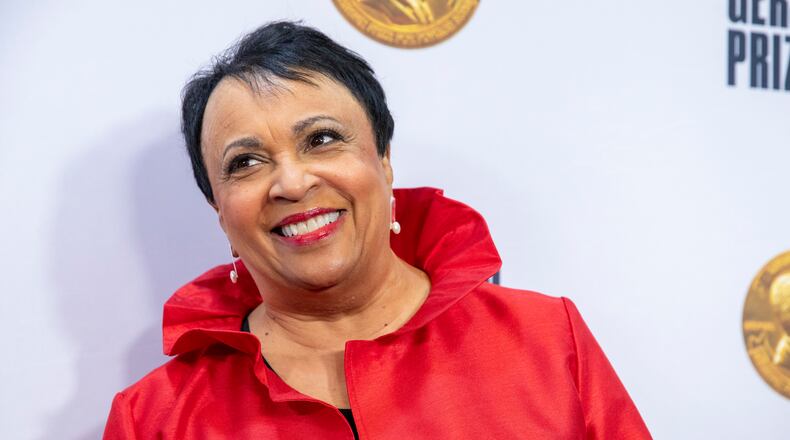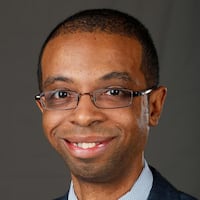Raised in Central Illinois in the areas of Champaign and Springfield, Hayden, 71, was nominated as Librarian of Congress by President Barack Obama and was officially sworn in on Sept. 14, 2016.
In addition to previously serving as CEO of the Enoch Pratt Free Library in Baltimore, she was a member of the National Museum and Library Services Board. She also served as president of the American Library Association from 2003 to 2004. In 1995, she was the first African American to receive Library Journal’s Librarian of the Year Award in recognition of her outreach services at the Pratt Library, which included an after-school center for Baltimore teens offering homework assistance and college and career counseling. Hayden received a B.A. from Roosevelt University and an M.A. and Ph.D. from the Graduate Library School of the University of Chicago.
In advance of her appearance, Hayden reflected on her journey, why representation matters and an exciting opportunity to visit a Dayton literary landmark.
Q: Personally and professionally, how does it feel to be a historic Librarian of Congress?
A: Professionally, as the first female to be the Librarian of Congress since 1802, it is significant for the profession of librarianship. Personally, the fact that I’m a person of color — an African American who descended from people who were forbidden by law to even learn to read — to be now the head of the world’s largest library with the largest collection of human knowledge is something I think about almost daily. And I (think about) what that means not only to me personally but what it means to people who look like me and see me in the position.
Q: Did you ever imagine your path would include becoming Librarian of Congress?
A: Oh my goodness no. And not even in my career as a librarian did I think I would be called on to be nominated. But President Obama and his administration wanted to make sure the Library of Congress, going forward, would be accessible to everyone and more people. So, that’s how I got to be in the nomination process.
Credit: Susan Walsh
Credit: Susan Walsh
Q: Growing up, were you always an avid reader?
A: Yes. Although I had music in my background, I loved to read. And that’s why representation matters — I only saw myself in one or two books when I was about 8 years old. As someone who loved to read, it meant a lot to see myself in something as important as a book. If you don’t see yourself represented in something as important as a book, what does that tell a young person?
Q: What were some of your favorite books?
A: When I was young, I loved “Bright April” and “Little Women.” I still love James Baldwin’s “If Beale Street Could Talk,” which was a book you could give to young adults because it spoke to their experience. And I was a Young Adult Coordinator at Chicago Public Library at the time.
Q: What’s the current state of the Library of Congress and your endeavors?
A: We are going to have a Treasures Gallery, a welcome center and an orientation area. We’re also going to have a learning lab for young people to help them learn about research and help them create their own narratives. We have a big outreach program throughout the country via the Mellon Foundation so we can go into communities and help them with their history and also include them in our collections. We’re also digitizing 61 million items. Right now online you can see Rosa Parks’ papers but also her recipe for peanut butter pancakes.
Credit: Keith Dannemiller
Credit: Keith Dannemiller
Q: What are your thoughts on the significance of the Dayton Literary Peace Prize?
A: This weekend will show the power of books and knowledge. Books can bring peace and actually help with empathy, (allowing us) to step into other cultures and learn about people through books. There is an opportunity with literature to have peace if people would open their minds and hearts. It is so wonderful that (this ceremony) is happening in the heartland of America.
Q: What do you hope audiences take away from your interview with Sandra Cisneros?
A: As a librarian who is very concerned about continuing to have representation in books for young people and all people, I’m excited to be able to interview Sandra Cisneros. People may know “The House on Mango Street” but they might not know much about her and growing up Mexican American in Chicago, where I spent a lot of time. I want to (share) how much of the book reflected her real life experiences, how she grew into being comfortable with who she was, and what books influenced her. I’m basing my interview on her memoir “A House of My Own.”
Q: What do you have also in store this weekend in Dayton?
A: My trip to Dayton will include visiting the public libraries in the area, which I’m really excited about. I’m planning to see Orville and Wilbur Wright’s plane. I’m also going to go to the Paul Laurence Dunbar House, which is something very dear to my heart. Dunbar’s house was such a vital part of his life. Most people probably know Paul Laurence Dunbar worked at the Library of Congress — at the Jefferson Building in 1897. Plus Dunbar was one of my grandmother’s favorite poets. And she could read the dialect as well because of her background. My 92-year-old mother will be with me in Dayton as well.
HOW TO GO
What: “Dayton Literary Peace Prize: A Conversation with the Authors”
Where: Victoria Theatre, 138 N. Main St., Dayton
When: 4 p.m. Saturday, Nov. 11. Doors open at 3 p.m.
Tickets: $25-$150
More info: Call 937-228-3630 or visit daytonlive.org
Additional info regarding Library of Congress: loc.gov
About the Author



